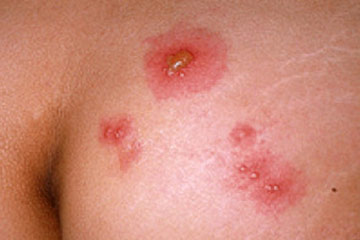Treatment of Malaria
Malaria can be treated effectively early in the course of the disease, but delay of therapy can have serious or even fatal consequences. Travelers who have symptoms of malaria should be advised to seek medical evaluation as soon as possible. Specific treatment options depend on the species of malaria, the likelihood of drug resistance (based on where the infection was acquired), the age of the patient, pregnancy status, and the severity of infection.
Medications that are not used in the United States for the treatment of malaria, such as halofantrine, are widely available overseas. CDC does not recommend halofantrine for treatment because of cardiac adverse events, including deaths, which have been documented after treatment. These adverse events have occurred in people with and without preexisting cardiac problems and both in the presence and absence of other antimalarial drugs (such as mefloquine).
Travelers who reject the advice to take prophylaxis, who choose a suboptimal drug regimen (such as chloroquine in an area with chloroquine-resistant P. falciparum), or who require a less-than-optimal drug regimen for medical reasons are at increased risk for acquiring malaria and needing prompt treatment while overseas.
In addition, some travelers who are taking effective prophylaxis but who will be in remote areas may decide, in consultation with their travel health provider, to take along a reliable supply of a full course of an approved malaria treatment regimen (see Box 3-03 for a definition of reliable supply).
In the event that they are diagnosed with malaria, they will have immediate access to this treatment regimen, which if acquired in the United States is unlikely to be counterfeit and will not deplete local resources. In rare instances when access to medical care is not available and the traveler develops a febrile illness consistent with malaria, the reliable supply medication can be self-administered presumptively. Travelers should be advised that this self-treatment of a possible malarial infection is only a temporary measure and that prompt medical evaluation is imperative.
Two malaria treatment regimens can be prescribed as a reliable supply: atovaquone-proguanil and artemether-lumefantrine. The use of the same or related drugs that have been taken for prophylaxis is not recommended to treat malaria. For example, atovaquone-proguanil may be used as a reliable supply medication by travelers not taking atovaquone-proguanil for prophylaxis.
DRUG | ADULT DOSE | PEDIATRIC DOSE | COMMENTS |
|---|---|---|---|
Atovaquone-proguanilThe adult tablet contains 250 mg atovaquone and 100 mg proguanil. The pediatric tablet contains 62.5 mg atovaquone and 25 mg proguanil. | 4 adult tablets, orally as a single daily dose for 3 consecutive days | Daily dose to be taken for 3 consecutive days: 5–8 kg: 2 pediatric tablets 9–10 kg: 3 pediatric tablets 11–20 kg: 1 adult tablet 21–30 kg: 2 adult tablets 31–40 kg: 3 adult tablets >41 kg: 4 adult tablets | Contraindicated in people with severe renal impairment (creatinine clearance <30 mL/min) Not recommended for people on atovaquone-proguanil prophylaxis Not recommended for children weighing <5 kg, pregnant women, and women breastfeeding infants weighing <5 kg |
Artemether-lumefantrineOne tablet contains 20 mg artemether and 120 mg lumefantrine. Anuncios | A 3-day treatment schedule with a total of 6 oral doses is recommended for both adult and pediatric patients based on weight. The patient should receive the initial dose, followed by the second dose 8 hours later, then 1 dose twice per day for the following 2 days. 5–<15 kg: 1 tablet per dose 15–<25 kg: 2 tablets per dose 25–<35 kg: 3 tablets per dose ≥35 kg: 4 tablets per dose | Not for people on mefloquine prophylaxis Not recommended for children weighing <5 kg, pregnant women, and women breastfeeding infants weighing <5 kg | |
1If used for presumptive self-treatment, medical care should be sought as soon as possible.






